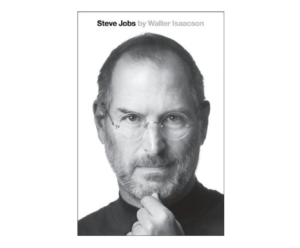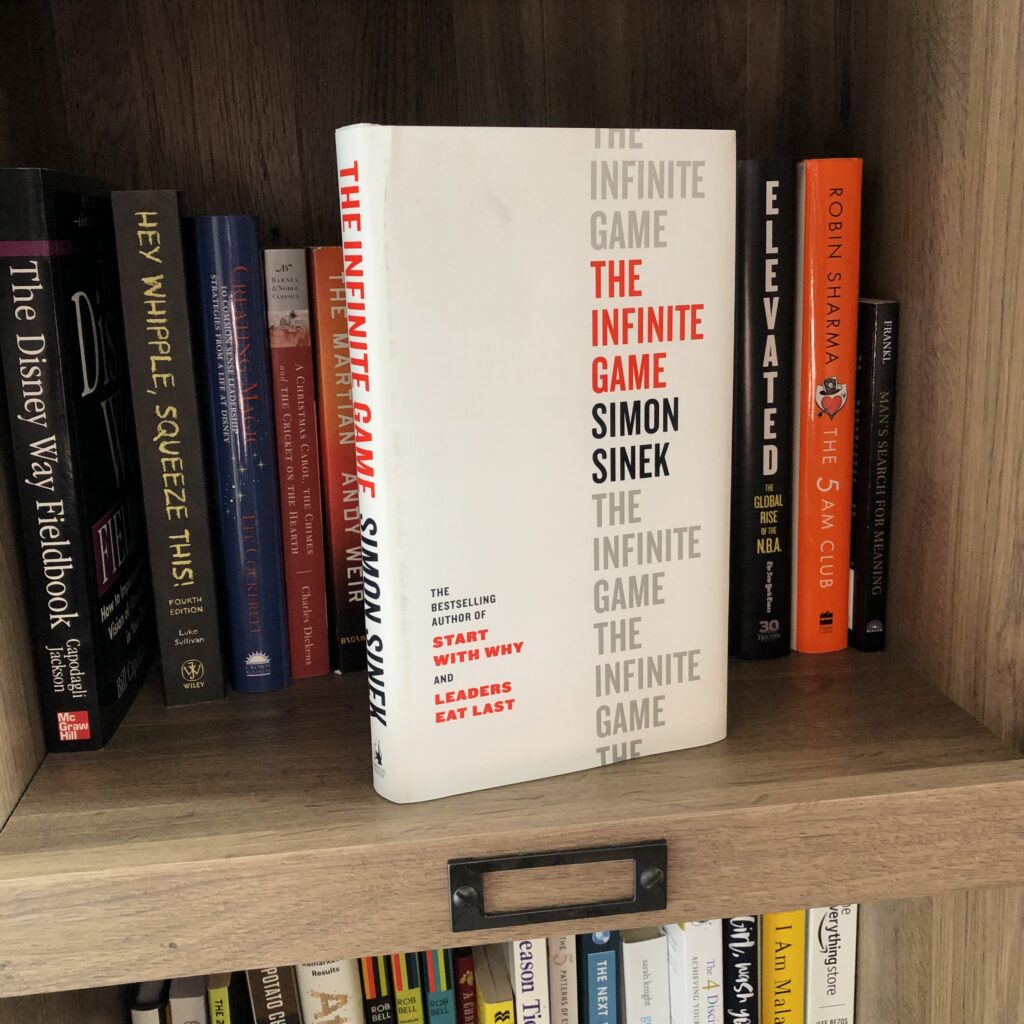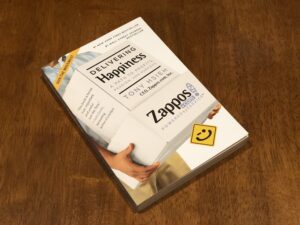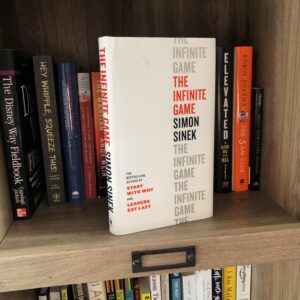

What does it mean to play a game you can’t win? That’s the premise Simon Sinek unpacks in The Infinite Game. It’s a book that challenged my thinking, reframed my approach to leadership, and pushed me to confront one of life’s biggest truths: not everything is a race to the finish. Instead, life—like business, relationships, and personal growth—is an infinite game, where the goal isn’t to “win” but to keep playing and improving along the way.
This book lands differently than your average business or leadership manual. It’s not a checklist of hacks or quick wins. Instead, Sinek offers a mindset shift: a blueprint for operating in systems where there are no defined endpoints. And it’s one of those rare books where every chapter hits you with an insight that feels both profound and completely obvious once it’s laid out.
Finite vs. Infinite Games: The Core Idea
The premise is simple: finite games, like sports, have clear rules, defined players, and measurable outcomes. There’s a winner and a loser. But infinite games—think business, politics, relationships, and life—don’t follow the same playbook. There’s no finish line, no ultimate victory. The point is to keep the game going, with purpose and integrity.
In an infinite game, short-term strategies don’t cut it. Leaders who are obsessed with quarterly earnings, crushing the competition, or one-upping their peers often find themselves burning out or making decisions that undermine their long-term vision. Sinek argues that adopting an infinite mindset creates resilience, adaptability, and a deeper sense of purpose.
This distinction hit me hard. How often do we treat life like a finite game? Trying to “win” at career success, relationships, or even personal development? Sinek doesn’t just present the concept—he calls us out on it, then gives us tools to play better.
The Five Essential Practices of Infinite Mindset Leaders
At the heart of the book are five practices that help leaders embrace infinite thinking:
- Advance a Just Cause – A just cause is a vision of the future that inspires people to sacrifice, commit, and persist. Sinek distinguishes this from a mission statement—it’s not just about what you do; it’s about why you do it. The companies and leaders who embrace this kind of purpose don’t chase short-term wins. They play the long game by staying anchored to their cause.Actionable takeaway: Are your goals aligned with a just cause? Or are you simply chasing metrics and milestones?
- Build Trusting Teams – A trusting team isn’t just one that performs well; it’s one where people feel safe to be vulnerable, to admit mistakes, and to speak truth to power. It’s a reminder that leadership isn’t about power; it’s about creating an environment where others can thrive.Actionable takeaway: Think about the culture you’re building—at work, at home, or even in your friendships. Are you fostering trust or fear?
- Study Your Worthy Rivals – This chapter flips the concept of competition on its head. Instead of focusing on beating the competition, Sinek encourages us to learn from them. A worthy rival is someone who challenges us to be better, not just bigger.Actionable takeaway: Who are your worthy rivals? What are they doing that inspires you—or makes you uncomfortable?
- Prepare for Existential Flexibility – Infinite-minded leaders are willing to pivot when their cause demands it. This means being brave enough to abandon practices, products, or even business models that no longer serve the cause.Actionable takeaway: Are you clinging to strategies that worked in the past but no longer serve your purpose?
- Demonstrate the Courage to Lead – Infinite leadership isn’t for the faint of heart. It requires courage—to make unpopular decisions, to challenge the status quo, and to prioritize the future over the present. Sinek reminds us that leadership is a choice, not a rank.Actionable takeaway: Are you leading with courage, or are you playing it safe?
What Makes This Book Stand Out
One of the things I love most about The Infinite Game is Sinek’s storytelling. He weaves in examples from businesses like Microsoft and Apple, alongside lessons from military leaders and personal anecdotes. These stories don’t just illustrate his points—they make them stick.
Sinek also doesn’t shy away from calling out the flaws in modern business culture. The obsession with short-term gains, the fixation on crushing the competition, the toxic environments created by fear-driven leaders—it’s all fair game. And while his tone is direct, it’s never preachy.
What makes this book particularly powerful is its relevance beyond business. As I read, I kept thinking about how this mindset applies to relationships, parenting, personal growth, and even health. It’s a leadership book, yes, but it’s also a life manual.
My Key Takeaways
- Purpose over profit: Profit is a result, not a purpose. Chasing profit without purpose leads to burnout and mediocrity.
- Play the long game: Focus on building systems and relationships that endure, rather than winning in the short term.
- Embrace humility: Acknowledge you don’t have all the answers—and learn from those who challenge you.
Who Should Read This Book?
If you’re a leader in any capacity—at work, at home, or in your community—this book is for you. But even if you’re not in a traditional leadership role, the principles of infinite thinking can transform how you approach life’s biggest challenges.
Sinek’s writing is accessible, thoughtful, and deeply inspiring. The Infinite Game isn’t a book you read once and shelve—it’s a guide you’ll revisit whenever you feel stuck in the grind of short-term thinking.
Final Thoughts
The Infinite Game is more than a book; it’s a call to action. It challenges you to rethink what success looks like, redefine your goals, and lead with courage and purpose. For me, it’s become a compass for how I want to show up—not just in my work, but in every area of my life.
If you’re ready to shift your mindset and embrace the long game, pick this one up. It’ll stay with you long after you’ve turned the final page.
Facebook
Twitter
LinkedIn
Pinterest
Pocket
WhatsApp
Never miss any important news. Subscribe to our newsletter.
Related News


Delivering Happiness by Tony Hsieh
January 13, 2025

The Infinite Game by Simon Sinek
January 12, 2025

World’s first digital NFT house sells for $500,000
April 2, 2021


